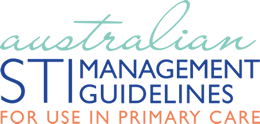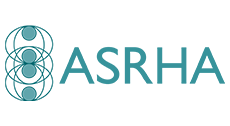Candidiasis
Overview
- Candida species can be normal flora and therefore not need treatment if asymptomatic.
- Can be sexually transmitted but is not considered a sexually transmitted infection (STI).
- Can arise spontaneously or secondary to disturbance of vaginal flora e.g. antibiotic therapy or increased oestrogen levels e.g. pregnancy, postmenopausal oestrogen therapy.
- Majority Candida albicans, rarely other Candida species.
|
Symptoms |
|
|
Penile |
Vulvar/vaginal |
|
|
Special considerations
Recurrent candidiasis is defined as 4 or more episodes in a 12-month period and may occur in nearly 10% of women. It should be confirmed by culture on at least one occasion.
Other causes for symptoms must be excluded by genital examination e.g. dermatitis, lichen sclerosis, herpes simplex viruses (HSVs).
Consider diabetes mellitus, human immunodeficiency virus (HIV) infection or other causes of immunosuppression if poorly controlled disease.
Usually diagnosed on basis of symptoms and signs. The following tests may be useful in recurrent disease.
|
Site/Specimen |
Test |
Consideration |
|
High vaginal swab or self-collected vaginal swab |
Microscopy and culture (MCS) |
Culture for yeast enables species differentiation and sensitivities and differentiation from bacterial vaginosis or trichomoniasis |
|
Penis |
Microscopy and culture (MCS) |
Culture for yeast |
Specimen collection guidance
Clinician collected | Self-collection
Investigations
- Recurrent candidiasis should be confirmed with vaginal swab for microscopy and culture with speciation
- Consider non-albicans species in cases of confirmed recurrent candidiasis
- Consider PCR testing for herpes only if there are suggestive clinical signs and symptoms.
See STI Atlas for images.
|
Principal treatment option |
||
|
Situation |
Recommended |
Alternative |
|
Uncomplicated |
Vaginal azole creams (e.g. clotrimazole 10% vaginal cream, 1 applicator intravaginally at night, as stat. dose or 3-7 day course) or 500 mg clotrimazole vaginal pessary stat. For balanitis, treat with Clotrimazole 1% twice daily until symptoms settle then for a further week. |
Fluconazole 150 mg PO, stat. |
|
Recurrent Candida albicans |
Treat each episode with longer course of azole cream (rather than stat. dose) and/or induction with fluconazole 150 mg PO, for 3 doses, 3 days apart, followed by maintenance with fluconazole 150 mg PO, weekly for 6 months |
Clotrimazole 10% vaginal cream (I applicator) nightly for 10-14 days then 500mg vaginal pessary weekly after induction. |
|
Candida glabrata |
Boric acid 600 mg vaginal pessaries (from a compounding pharmacy), one nocte for 14 days (boric acid can be fatal if ingested, avoid in pregnancy) |
100 000 IU nystatin inserted per vaginally for 14 days |
nocte: every night
PO: orally
stat.: immediately
Treatment advice
- Intravaginal and oral azoles have similar efficacy – topical therapy provides quicker symptom relief but women generally prefer oral therapy.
- Vulvar treatment alone is inadequate due to a vaginal reservoir – both sites should be treated.
- The addition of hydrocortisone 1% cream may provide symptomatic relief.
- No evidence that specific diets or use of probiotics influence recurrence.
- Reconsider diagnosis if no response to therapy.
- Oral azoles cannot be used in pregnancy.
- No hepatic monitoring is required for fluconazole use at the above doses.
Other immediate management
- Avoid local irritants e.g. soap, bath oil, body wash, bubble bath, spermicide, vaginal lubricant and vaginal hygiene products.
- Latex barrier contraception e.g. condoms can be damaged by antifungal vaginal creams or oil-based products.
- Post-coital penile hypersensitivity to vaginal Candida colonisation is possible and responds to partner treatment Hydrocortisone 1% cream may provide symptomatic relief. Partners do not usually require treatment.
Special considerations
- More severe disease and symptoms may need longer courses of oral or topical treatment.
- Consider seeking specialist advice before treating complicated presentations or recurrent disease that is not responding to therapy.
|
Situation |
Recommended |
|
May need longer course of topical treatment (e.g. 7 days minimum). Fluconazole/boric acid contraindicated. |
|
|
Allergy to principal treatment choice |
Try alternative treatment |
Not indicated for uncomplicated infection.
Test of Cure (TOC)
Not required.
Retesting
Not indicated unless symptoms fail to resolve. Also consider alternative diagnoses.
- 100% of patients with recurrent Candida have had yeast cultures and genital examination performed to inform further treatment.


